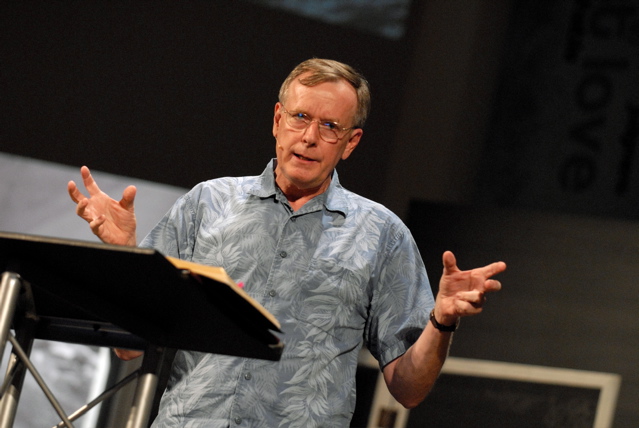
He was a prince of a man.
That’s what I keep telling people. It’s customary to say laudatory things about a person upon his death, whether there was all the much to laud or not. With David Powlison there is plenty to come. Other tributes have come in, and I’m sure there are many more to follow. Here are my paltry two pennies.
I met David around ten years ago, having read his articles and books for years before that. Some people are different in person from what you might expect. David was exactly as I imagined him to be: warm, engaging, inquisitive, humble, forthright, gracious, and wise.
Yes, lots of wisdom, as you might expect from the man who pioneered the biblical counseling movement. We were at a TGC meeting in Chicago when I first spent time with David. Selfishly, during a dinner break I found the van David would be riding in so I could spend a few hours with the man I had already learned so much from. I wasn’t the only one in the van or the only one at dinner. Several of us asked him questions about counseling, about pastoral ministry, and about issues in our own lives. Except for our questions, David talked almost the entire time. It was one of the few times I can remember in life where someone dominated hours of conversation as an act of humility. At one point he meandered into a long series of reflections on the Sermon on the Mount. It was masterful. He was a master at Spirit-filled rumination.
Over the ensuing years our paths would cross from time to time—at a conference, at Westminster, at TGC, over the phone. He was always warm with a smile and wise with his words. He understood people and understood his Bible. He asked great questions and told great stories. He was tender enough to care for souls effectively and bold enough to reprove those who didn’t.
A few weeks ago I sent an email to the TGC Council asking for recommended preaching resources (hopefully I’ll turn that into a blog soon). All I asked for was an author, a book, and a sentence of recommendation. Aware of David’s declining health, I never expected him to reply. But he did. And what he wrote was pure gold (and pure Powlison), not really a direct answer to my question, but a brief reflection on the nature of preaching itself.
From David Powlison on May 23:
I have thought for a long time that the biggest lack among preachers who love God’s Word is that they don’t know people well enough. So they dive deep into exegesis and biblical theological exposition, and theological categories, but their applications come down (far too often) only as far as generalizations, moralism, pietism, or how to stand up against cultural falsehoods. A true moral goodness, a candid piety where real need connects to real promises (like the psalms), and standing against cultural drift all matter profoundly. But generalizations need to be brought down to street level struggles and to self-deceptive habits of the heart. Truly effective, life-altering preaching—like all real personal engagement with Scripture—is based on what Paul Tripp called the “double exegesis”: honest human experience meets deeply understood biblical truth. Books to read? I’m biased toward CCEF naturally, where our practical theology labors hard to do both!
A few weeks prior, the TGC Council gathered after the national conference. David wanted to be there, but his ill health prevented him. He wrote a letter to us—a touching, Christ-stained letter which he asked his good friends Tim Keller and Ray Ortlund to read. It was surreal to hear David address us as a body for the last time. And yet, even in that farewell letter he ministered to us, encouraged us, called us to Christ and pointed to the cross. It’s what David did and who he was. Without exaggeration I can say that I walked away from every encounter with David wanting to know God more and love people better. It’s hard to leave a more impressive legacy. Soli Deo gloria.



